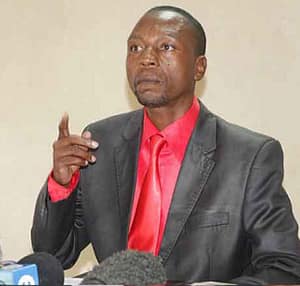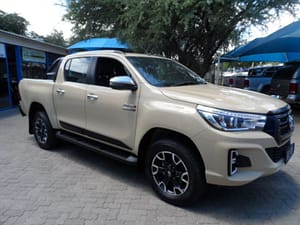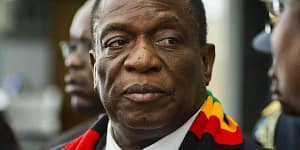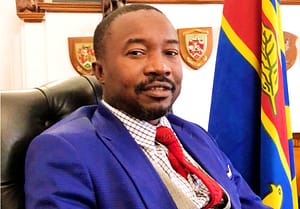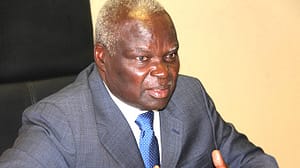Zimbabwe coups: What now for the legacies?

By Dr. Toendepi Shonhe
Three months after President Emmerson Mnangagwa deposed Robert Mugabe on November 15, 2017, Nelson Chamisa applied the same template to supplant Thokozani Khupe, ensuring he replaced Morgan Tsvangirai before his burial in March of 2018.
Both promised to protect and advance the legacies of their followers. What have these two coupsters achieved, three years after?
Zimbabwe lacks the culture of monitoring and evaluation and has a tendency of repeating failed policies and experiences.
This seems to stem from the yawning absence of public participation in decision-making.
This culture is undergirded by the partocratic policymaking framework, imbued in the socialist philosophy where the chefs know it all and the followers are a collective “yes men”.
Where participation is promoted, it is mostly aggregate in nature. Thus, it lacks the deliberative qualitative engagement.
This is how the 2013 constitution suffers reversal, it was imposed on citizens or as choreographed positions disguised as people’s inputs.
The policy drivers make no pretence on what was mistakenly added out of interparty contestation ought to be deleted.
So, let’s hold leaders to account, whosoever they are! First, what were the Mugabe and Tsvangirai legacies?
Out of many, we can highlight a few, only for purposes of illustrating the extent to which Zimbabweans are taken for granted.
What we see more is power contestation, with some losing and some gaining, but overall, the citizens are forgotten, if not ignored.
As a founder of Zanu-PF, Mugabe’s legacy includes the attainment of independence in 1980, thus the political freedoms and the social service delivery improvements that Zimbabwe started in the early 1980s.
These were delivered under the “Growth with Equity” mantra which sought to achieve “a socialist egalitarian society”.
Later in the 2000s, Mugabe pursued the redistributive policies epitomised by the indigenisation and land reform policies. His anti-imperialist position underpinned Mugabeism.
The Gukurahundi and the violent anti-opposition and power retention that were undergirded by the militarisation of the state compete with the positives.
Lives were lost. Patronage and violence combined to instil fear to ensure electoral “victory”, breeding illegitimacy, economic regression and, thus, collapsing livelihoods of the majority.
Tsvangirai, a trade unionist of note, is arguably the man that was able to challenge and defeat the feared Mugabe in an election, allegedly on numerous occasions.
The victories were denied. When he went into government under the government of national unity (GNU), Zimbabwe experienced a reprieve, which trickled to the villages, mines, and the farms in rural Zimbabwe.
His popularity is attributed to his mobilisation skills and proximity to ordinary Zimbabweans and their issues.
However, others suggested he needed hand-holding and that he tended to listen to the last man for advice.
We can assume that these constitute the legacies to be protected.
However, we also know that Mnangagwa announced that “Zimbabwe is open for business”, akin to the national reconciliation policy pronounced by Mugabe in 1980. In essence, the policies similarly portray the need to coexist with global capitalist interests.
The abandonment of the appeasement in the late 1990s following the regrettable structural adjustment led to the radical land reform programme in the 2000s.
In the same token, Chamisa activated the long-mooted “generational consensus”, an exclusivity approach that set the focus on the youth only.
How this was meant to galvanise the vote is anybody’s guess.
What is clear is how the workers and poor peasants struggles that Tsvangirai represented were abandoned in place of elite interests.
Also, quite in contradiction was the quest to make the party a broad church, oblivious to the age composition of the Christians, negating the generational consensus mantra prized by Chamisa.
What is also clear is how the Zinasu (student movement) and civil society players found favour in the new structures after the 2018 congress.
As we are told, the party’s name was also changed at the Gweru congress, leading to the question: Which legacy was being protected?
It is obvious, therefore, that the two who were to be fierce protagonists in the 2018 election used the legacies to attract the support of their predecessor’s followers but immediately intentionally drop these and move on.
With the military taking a more central role in party and state affairs, Mnangagwa has reformed the state in the image of the foreign forces.
Policymaking is configured to advance the interests of foreign capital under neoliberalism. The appointment of bankers Mthuli Ncube and George Guvamatanga as minister and the permanent secretary of the Finance and Economic Development ministry respectively, and neoliberal Eddie Cross in the Reserve Bank of Zimbabwe advisory board heralds the policy shift, thus burying the Mugabe legacies, contrary to promises.
In the opposition, one is left to perceive a deliberate effort to destroy the collective and to rebuild the former people’s movement in the name of an individual.
With no party name, no party offices, no legitimate leadership, Chamisa has become the party, the values, and the vision of the grouping, now very problematic to identify as a party.
Clearly, this negates the vision that Tsvangirai ever envisioned.
What has been achieved in common by the two coupsters is the displacement of the citizens and voters from policymaking, the ruination of national and party constitutions, respectively.
The bastardisation of national and party interests to mean elites and personal interests is intriguing.
Mugabe had decentralised corruption, but it has been centralised in the familial territories under the new dispensation.
Those in the opposition have been equalised with corruption with the same characterisation.
It is possible to imagine that the chest of resources is being built in anticipation of the next election.
In this case, it makes sense how the two coupsters are faring. With the people’s issues displaced, the will to power subsisting in both camps, it is imaginable that those who control the government infrastructure will supplant those outside but are unwilling to mobilise support.
The next election is ongoing and the Khupe camp is the mediating force, emboldening the former and decimating the latter. The latter is preoccupied with contesting the pre-election sideshows, but the ultimate loss is in 2023.
In the power retention agenda, Mnangagwa has been able to protect the Mugabe legacy, never mind the marauding divisions.
Not to be outdone, Chamisa has also been able to protect Tsvangirai’s losing legacy, already assured for 2023.
Neglected and with no recourse, leadership and common agenda, the citizens can only participate in their suffering, along-standing legacy.
–Toendepi Shonhe is a research fellow at the Thabo Mbeki School of Public and International Affairs, University of South Africa


